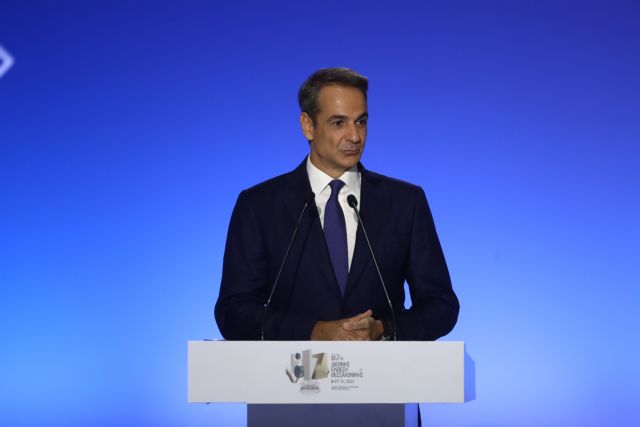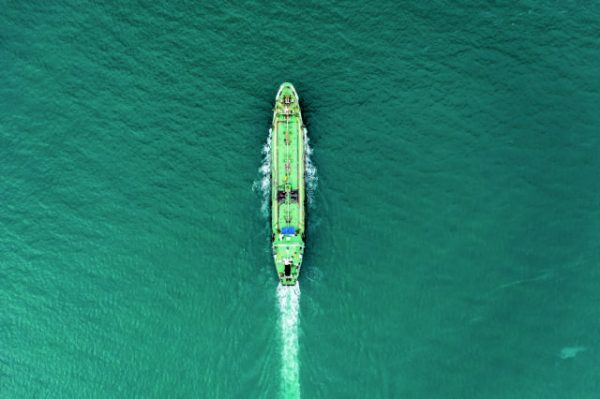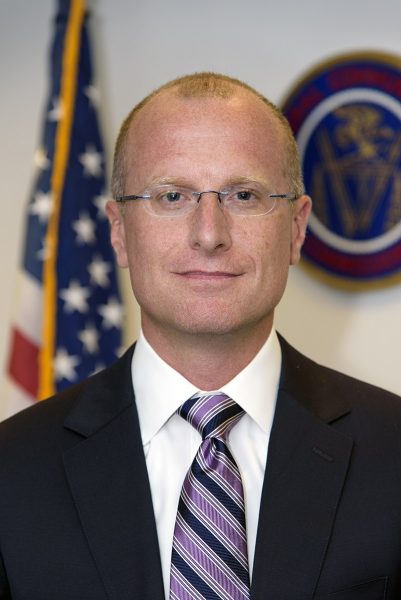
Greek Prime Minister Kyriakos Mitsotakis announced a “mixed bag” of looser state “purse strings” in tandem with better performance and diligence by the latter in dealing with natural disasters, as the “honeymoon” after his party’s landslide election last June has evaporated quickly due to a handful of devasting wildfires, wide-spread flooding in central Greece this month and persistent cost-of-living hikes.
Mitsotakis spoke on Saturday evening during a customary state-of-the-economy address at the annual Thessaloniki International Fair (TIF), with the natural disasters over the last three months generating more attention to this year’s statements than previous years.
In focusing on the flood-ravaged Thessaly plain, Greece’s bread-basket, Mitsotakis said “…our first priority is to help the citizens in flooded areas, to support businesses, farmers and stockbreeders. The first payments began yesterday.”
He added that reconstruction of damaged infrastructure is an urgent priority, while he underlined that the Thessaly province, as a whole, has faced water management – such as alternating droughts and flooding – for decades. As such, he announced the establishment of a water management entity for the entire plain, under the auspices of the infrastructure and environment ministries.
Another radical – by modern Greek standards – measure he cited was the prospect of enacting legislation to make property insurance mandatory for large to medium-sized businesses in certain regions, with 10 percent of the insurance costs deducted from annual property taxes.
On the spending side, Mitsotakis began by saying his government will never compromise fiscal stability, something he said led to the painful bailout era (2010-2018), before he announced pay increases for public sector employees – to the tune of 10.5 percent, as of Jan 1, 2024.
He qualified the higher spending by saying it was the first such pay hike in Greece’s public sector in 13 years.
Other spending and stimulus measures, as he announced, were a new increase in the minimum wage, as of April 2024; subsidies to keep the price of basic products stable; pension hikes and continued subsidies for heating oil and electricity for eligible low-income consumers.
Turning to the subject of “law and order”, traditionally a preferential “playing field” for his conservative New Democracy (ND) party but one where his government has attracted heightened criticism and perceived voters’ disapproval, due to a string of violent crimes and perceived laxity in deflecting a surge of illegal migration, Mitsotakis promised better public safety and specific measures.
Specifically, he announced an extension of a border fence in Evros prefecture, on the land border with Turkey; the reassignment of roughly 2,500 police officers back to active duty, as opposed to protecting VIPs and state officials; penal code revisions to foresee jailtime after a first instance conviction for misdemeanor offenders whose offenses cost lives and lost property; stricter prison sentencing guidelines, and, foremostly, accelerating court proceedings and the issuance of verdicts and decisions – another long-standing problem plaguing the country.
Speaking before the Greek prime minister was his Bulgarian counterpart Nikolai Denkov, as Bulgaria is the honored country at this year’s 87th TIF.
“Greece is not alone” in dealing with natural disasters, Denkov said, adding that both countries have witnessed the worst possible consequences of the climate crisis.
He specifically mentioned victims of floods in Bulgaria, pointing out that Bulgaria and Greece face similar problems, such as flooding and wildfires, the reason why cooperation is necessary.
Denkov also praised Mitsotakis for transforming Greece into an attractive destination for foreign investments as well as a popular investment destination for his country.
In terms of specific projects, he cited the IGB interconnector natgas pipeline between Greece and Bulgaria, which “constitutes a clear example of a strategic, long-term investment with a wider regional scope”, as well as a LNG terminal off the extreme northeast Greek port of Alexandroupolis, in tandem with a proposed crude pipeline to connect Alexandroupolis with the large refinery in Burgas, on the Black Sea.
Latest News

German Ambassador to Greece Talks Ukraine, Rise of Far Right & Tariffs at Delphi Economic Forum X
Commenting on the political developments in his country, the German Ambassador stressed that it was clear the rapid formation of a new government was imperative, as the expectations across Europe showed.

Athens to Return Confiscated License Plates Ahead of Easter Holiday
Cases involving court orders will also be excluded from this measure.

Servicers: How More Properties Could Enter the Greek Market
Buying or renting a home is out of reach for many in Greece. Servicers propose faster processes and incentives to boost property supply and ease the housing crisis.

Greek Easter 2025: Price Hikes on Lamb, Eggs & Sweets
According to the Greek Consumers’ Institute, hosting an Easter dinner for eight now costs approximately €361.95 — an increase of €11 compared to 2024.

FM Gerapetritis Calls for Unified EU Response to Global Crises at EU Council
"Europe is navigating through unprecedented crises — wars, humanitarian disasters, climate emergencies," he stated.

Holy Week Store Hours in Greece
Retail stores across Greece are now operating on extended holiday hours for Holy Week, following their Sunday opening on April 13. The move aims to accommodate consumers ahead of Easter, but merchants remain cautious amid sluggish market activity.

Green Getaway Ideas for Easter 2025 in Greece
Celebrate Easter 2025 in Greece the sustainable way with eco-farms, car-free islands, and family-friendly getaways rooted in nature and tradition.

Civil Protection Minister Details Summer Firefighting Plans at Delphi Forum
At the 10th Delphi Economic Forum, Minister of Climate Crisis and Civil Protection Yiannis Kefalogiannis discussed Greece's plans for the upcoming fire season.

How Shops and Markets Will Operate During Easter Holy Week
The Easter holiday schedule has been in effect since April 10, with retail stores open Palm Sunday, and most supermarkets also operating to meet consumer demand for Easter shopping

Why Is the French Aircraft Carrier Charles De Gaulle in Piraeus?
Docking in Piraeus after a four-month deployment in the Indo-Pacific region, the admiral of the aircraft carrier the Charles de Gaulle says, "Greece is our best partner in the Mediterranean."








































 Αριθμός Πιστοποίησης
Αριθμός Πιστοποίησης